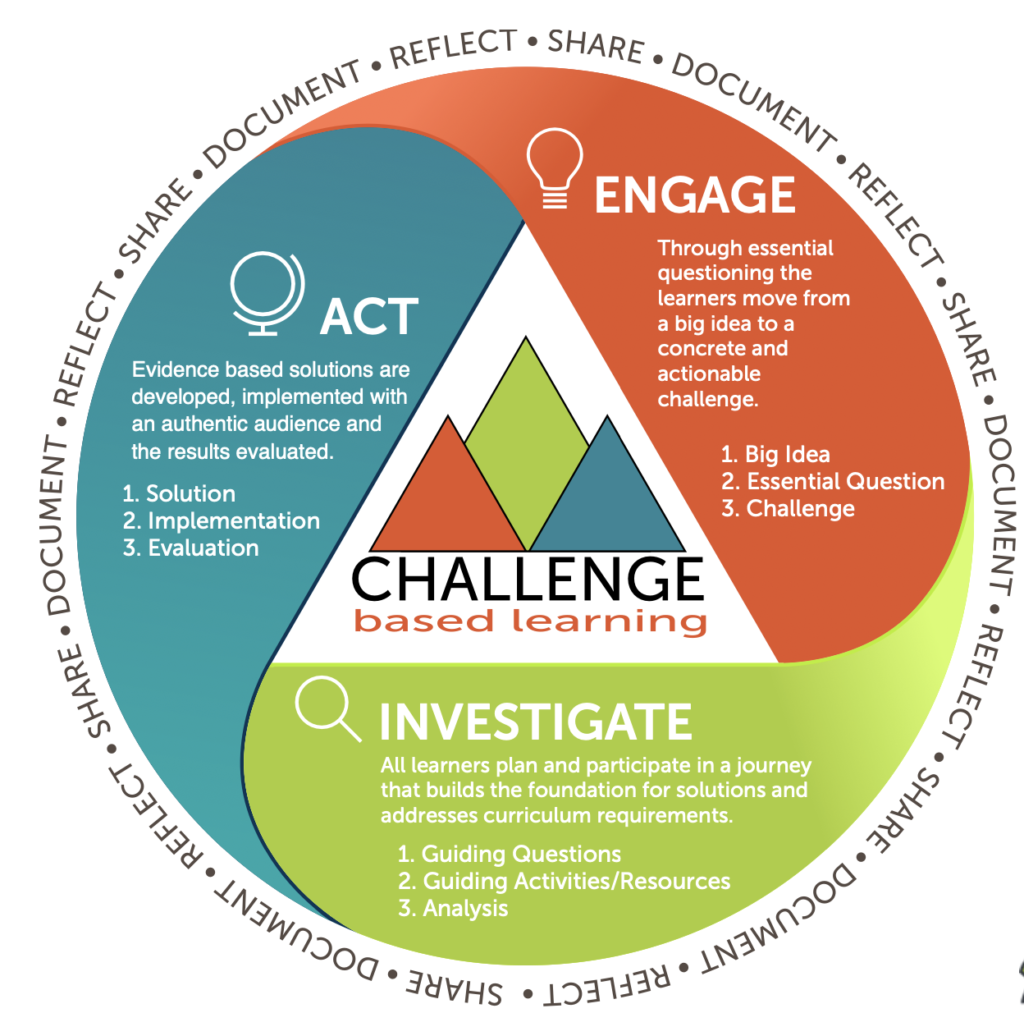Anforderungsorientiertes Lernen

Challenge-Based Learning (CBL) is a collaborative and hands-on framework for learning while solving real-world challenges. The framework empowers Learners (students, teachers, administrators and community members) to address local and global challenges while acquiring content knowledge in several domains. It involves students, teachers, families, and community members working together to identify big ideas, ask thoughtful questions, investigate and solve challenges, and share their thoughts with the world. CBL helps learners gain deep subject area knowledge and develop the skills necessary to thrive in an ever-changing world. The framework consists of three interrelated phases: Engage, Investigateund Act.
The following video provides a nice introduction to how to use CBL in practice:
For more information please refer to the Inspiring Practice on the topic Challenge-Based Learning
2 Kommentare
Kommentar absenden
Du musst angemeldet sein, um einen Kommentar abzugeben.


Great! Thanks Margarate
I really like the Challenge-Based Learning approach because it brings teaching closer to the students’ reality, making learning more meaningful and motivating. I think it’s essential to involve not only students but also teachers, families, and the community, creating a collaborative environment that values different perspectives. Moreover, the cycle of “Engage, Investigate, and Act” promotes critical and active thinking, preparing students to face complex real-world problems with creativity and responsibility. In my view, this method can transform the school into a dynamic space where knowledge ceases to be merely theoretical and becomes a tool for concrete and positive action.